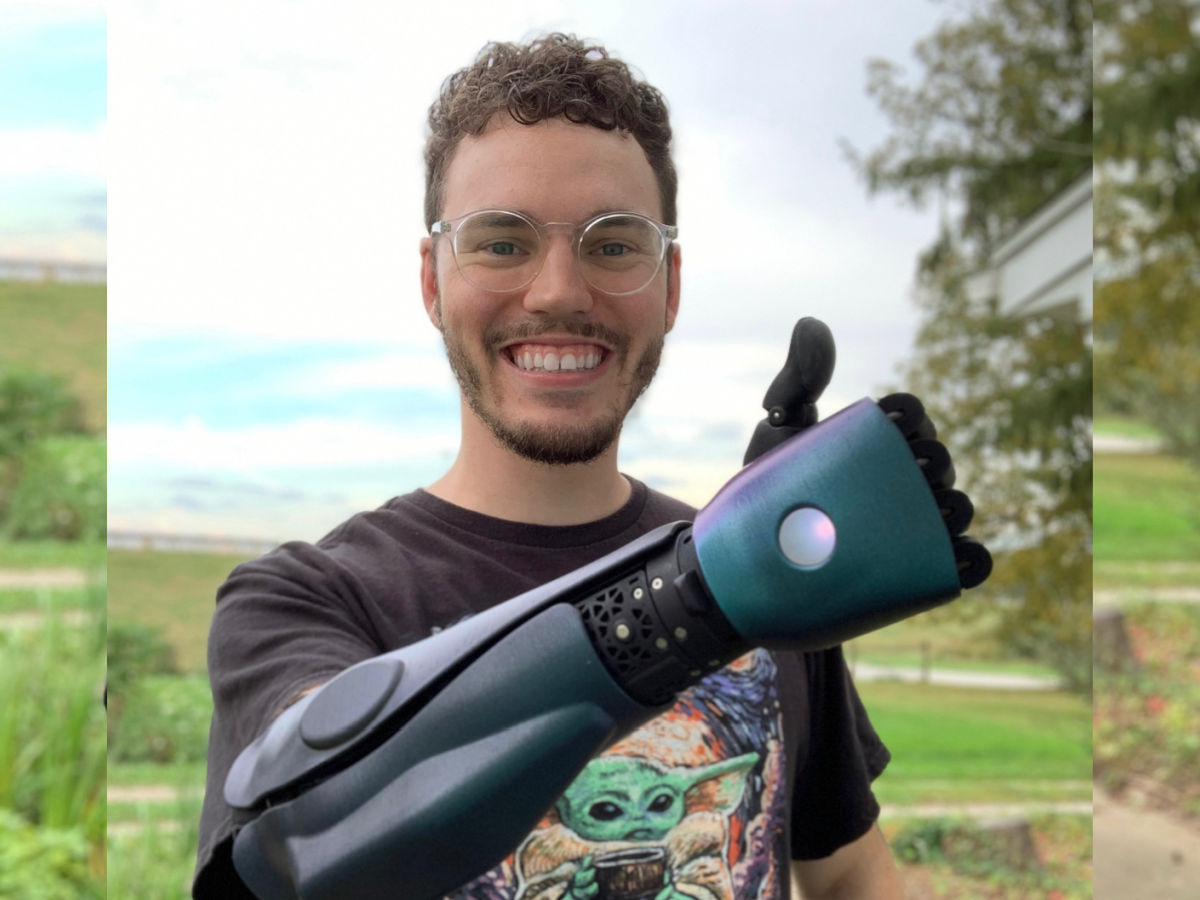Are realistic prosthetic limbs good for mental health?
10th October 2021

10th October 2021

It’s the first day of school, and elementary class students mingle. Talks of games played over the summer, new movies, common interests, and favorite activities are abundant. It’s a great way to make new friends. A young girl, born with a limb difference, is wearing a skin-toned, harness adapted realistic prosthetic limb. It fits awkwardly on her body, affecting her posture. She does her best not to draw attention to the arm that sort of looks like a real skin-toned hand, but isn’t. Children begin to notice, and their positive expressions change to confusion and apprehension affecting her self-esteem. Her prosthesis has, yet again, created a barrier.
These are the types of interactions that are happening with expressionless prosthetic devices across the globe. Limb different children all too often face immense pressure to fit in or to make friends. Add a prosthesis that lacks expression into the mix, it can make things even more difficult. There’s a connection lacking. They may become the last picked for a team or game. They may not be picked on at all, but low self-esteem will result in skipped activities like dances and school trips, all part of creating fun memories and developing essential skills for adulthood.
My role as a camp counselor for camp Un-Limb-ited through Shriners Hospitals involves me providing support for teen amputees who may be struggling emotionally. The camp allows each person to meet individuals with similar limb differences and share experiences that may help overcome challenges.
“
The mental well-being of any limb different person, especially children, should be taken into account during a prosthesis fitting journey.
”
I started as a camper myself in 2010. At that time, I had never interacted with another person with a limb difference, so I found it difficult to feel like “this person understands, this person has been through some of my battles.” Camp was an opportunity for me to learn from others and to feel part of a community. That’s what I hope I contribute as a counselor. I want kids to have the confidence to let their limb difference and uniqueness shine. I believe the key to championing positive mental health in any child is to give them the options to express themselves.
The mental well-being of any limb different person, especially children, should be taken into account during a prosthetic fitting journey. Expression is just as important as function. A prosthesis can be the most functional, but if it lacks expression, it sits in a drawer or under a bed, collecting dust. These are accounts I’ve heard first hand, and have experienced myself.
“
I wanted to shed that feeling of conformity that came with a skin toned prosthesis, because I did find myself hiding it, feeling ashamed of it, or just did not use it.
”
The Hero Arm, which was co-designed with the limb difference community, gives users the ability to choose from over 50 different designs to match style, mood, or interests. The bionic arm becomes an extension of personalities; something to be proud of and embraced. On the first day of school the little girl now has options, she could opt for a Star Wars prosthesis and invite conversations about her limb difference while discussing the characters in her favorite movie.
I only realized in adulthood there were more than skin-toned prostheses options available. I wanted to shed that feeling of conformity that came with a realistic prosthetic limb, because I did find myself hiding it, feeling ashamed of it, or just did not use it.
When we empower children and open doors for their mental health to soar, we are creating superheroes. The Hero Arm is doing just that.
Author – Richard Slusher